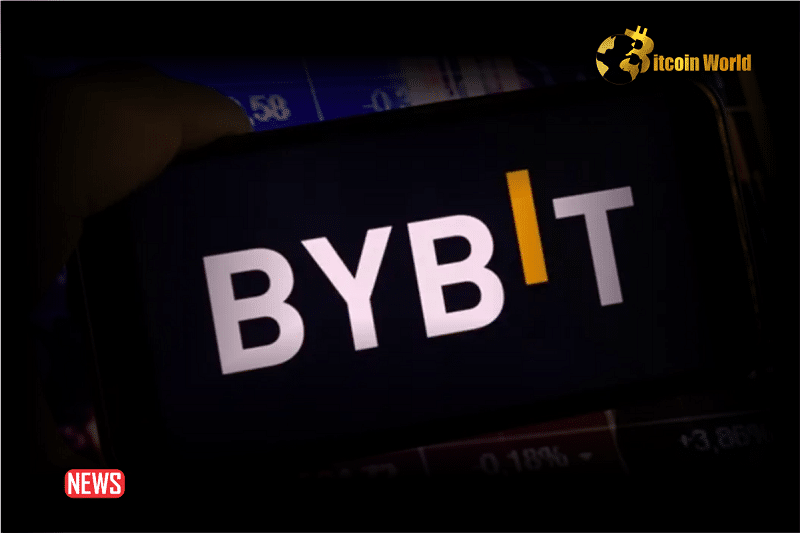Hong Kong’s crypto landscape is heating up! Major cryptocurrency exchange Bybit has officially thrown its hat in the ring, applying for a Virtual Asset Service Provider (VASP) license in the region. This move signals Bybit’s serious intentions to expand its global footprint and tap into Hong Kong’s burgeoning digital asset market. Let’s dive into what this means for Bybit, Hong Kong, and the broader crypto industry.
Bybit’s Hong Kong VASP Application: What We Know
According to recent regulatory filings, Bybit submitted its VASP license application on January 31st, aiming to operate in Hong Kong through its entity, Spark Fintech Limited. This application places Bybit among a growing list of 14 hopefuls seeking the Securities and Futures Commission’s (SFC) green light to offer crypto services in the special administrative region.
Here’s a quick breakdown of the key facts:
- Applicant: Bybit, via Spark Fintech Limited.
- Application Date: January 31st.
- Regulatory Body: Hong Kong Securities and Futures Commission (SFC).
- License Type: Virtual Asset Service Provider (VASP).
- Current Status: Application submitted, approval pending.
- Competition: Bybit joins 14 other applicants.
Why Hong Kong? Bybit’s Strategic Expansion
Why is Hong Kong so attractive to crypto exchanges like Bybit? Several factors are at play, making Hong Kong a strategic location for digital asset businesses:
- Strategic Location in Asia: Hong Kong serves as a vital gateway to the Asian markets, offering access to a large and tech-savvy population.
- Developed Financial Markets: As Bybit CEO Ben Zhou himself pointed out, Hong Kong boasts mature capital markets and a high level of financial literacy. This creates a fertile ground for crypto adoption and investment.
- Institutional Capital Inflows: Hong Kong is known for its significant institutional capital. Bybit aims to tap into this liquidity, recognizing the importance of robust trading volumes for a successful exchange.
- Pro-Crypto Stance (Nuanced): While regulations are in place, Hong Kong is actively trying to position itself as a crypto hub, creating a relatively clearer regulatory framework compared to some other regions.
Bybit’s interest in Hong Kong isn’t new. Back in April 2023, the Dubai-based exchange announced plans to establish its Central Asian business in the city. Reports also suggest Bybit intends to allocate a portion of its marketing, and research and development teams to Hong Kong, indicating a long-term commitment to the region.
The Regulatory Road Ahead: Challenges and Uncertainty
While Bybit’s application is a positive step, the path to obtaining a VASP license in Hong Kong isn’t guaranteed to be smooth. Here are some challenges and uncertainties:
- SFC Approval Timeline: The SFC’s review process can be lengthy and unpredictable. As evidenced by the waiting period for other exchanges like OKX, there’s no clear timeline for approval.
- Stringent Regulatory Requirements: Hong Kong’s VASP licensing regime is known to be rigorous. Exchanges must meet demanding standards in areas like anti-money laundering (AML), know-your-customer (KYC) compliance, and investor protection.
- Market Competition: With 14 applicants vying for licenses, the Hong Kong crypto exchange market could become competitive. Only two exchanges, OSL Exchange and HashKey Exchange, have secured licenses so far, highlighting the selective nature of the SFC’s approvals.
See Also: Gary Tiu: Hong Kong’s First Crypto Spot ETFs Coming By Mid-2024
“Licensed to Be Killed?” The Debate on Hong Kong’s Crypto Regulations
Hong Kong’s regulatory approach isn’t without its critics. Wang Yang, vice president of the Hong Kong University of Science and Technology, has voiced concerns, labeling the current licensing system as “burdensome and counterproductive.”
Yang’s critique, encapsulated in the term “Licensed to Be Killed,” suggests that the stringent regulations might stifle innovation and make it difficult for licensed exchanges to thrive. He points to the challenges faced by licensed platforms like OSL, which reportedly experienced significant losses after obtaining approval.
This raises important questions about the balance between regulation and fostering a dynamic crypto industry. Are Hong Kong’s regulations too restrictive, potentially hindering growth? Or are they necessary safeguards to protect investors and maintain market integrity?
See Also: Hong Kong Privacy Watchdog Raids Worldcoin Offices
Looking Ahead: What’s Next for Bybit and Hong Kong Crypto?
Bybit’s VASP application marks a significant development in Hong Kong’s crypto journey. Whether Bybit secures a license and how it navigates the regulatory landscape remains to be seen. The outcome will not only impact Bybit’s expansion strategy but also offer valuable insights into the effectiveness and attractiveness of Hong Kong’s crypto regulations.
For now, the crypto world watches as Bybit embarks on this regulatory path in Hong Kong. Will they succeed in gaining a coveted VASP license and thrive in this evolving market? Only time will tell.
#Binance #WRITE2EARN
Disclaimer: The information provided is not trading advice, Bitcoinworld.co.in holds no liability for any investments made based on the information provided on this page. We strongly recommend independent research and/or consultation with a qualified professional before making any investment decisions.




